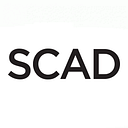Shark Tank of Wellness winner Samii
“Thirty-two million Americans experience food allergies, and forty percent of children with food allergies experience life-threatening reactions,” explains Krysta Silva (B.F.A., advertising). Speaking on behalf of her Shark Tank of Wellness award-winning team, Silva emphasized the need for new tools to help individuals stay safe and better understand what is in their food.
Krysta collaborated with fellow SCAD Atlanta students Daranie Mor (B.F.A., advertising) and Megan Ip (B.F.A., advertising, 2020) to create Samii, a set of portable, rechargeable utensils that detect allergenic proteins in food. Their concept was chosen from over 130 submissions from 36 countries as the first-place winner at the 2020 Global Wellness Summit in Palm Beach, Florida.
Today, Krysta and her team are working with investors to get Samii to a table near you.
Krysta Silva:
Samii started as a class project for ADBR 305: Brand Innovation: From Physical to Virtual (ADBR 305). Professor Misra-Deshpande put it plainly: “Your assignment is to win the Shark Tank of Wellness competition.” Our team set out with that goal in mind.
First, we researched the wellness industry and looked for white space to fill in. None of us had food allergies, but we all knew people struggling with this issue and thought it would be a meaningful project. We were shocked to see the real need for research and tools. A few of the statics were jaw dropping:
- 220 million people are affected globally by food allergies.
- Food allergies cost the U.S. economy $24.8 billion annually.
- Every three minutes there is an E.R. visit from induced anaphylaxis.
- Over 50% of adults report developing a food allergy after the age of 18.
- The cost of epinephrine increased 514% from 2001–2016.
Clearly something needs to be done, and the current rate of funding for research is woefully behind the needs of those suffering.
One of the largest needs is more detailed and accurate testing of food. Current allergen scanners require users to separate a portion of their food to be tested. But what if the selection you portioned off was safe, but the next bite was contaminated? We can’t expect diners to test every bite this way.
That is why Samii could be so revolutionary. It works in coordination with the app to test each bite as you eat it, bringing peace of mind to the eater and drastically lowering the numbers of individuals who will need emergency medical attention. By simply reversing the current way of testing food, we will change the entire industry for the better. We are now in discussions with a tech start-up that is interested in the possibilities ahead.
When I first applied to SCAD, I thought I wanted to study fashion design. I spent a lot of time researching what university was right for me. SCAD was absolutely the correct choice. Since making the decision to major in advertising, I’ve found my passion for product design. I can’t imagine doing anything else.
By Robert Almand
